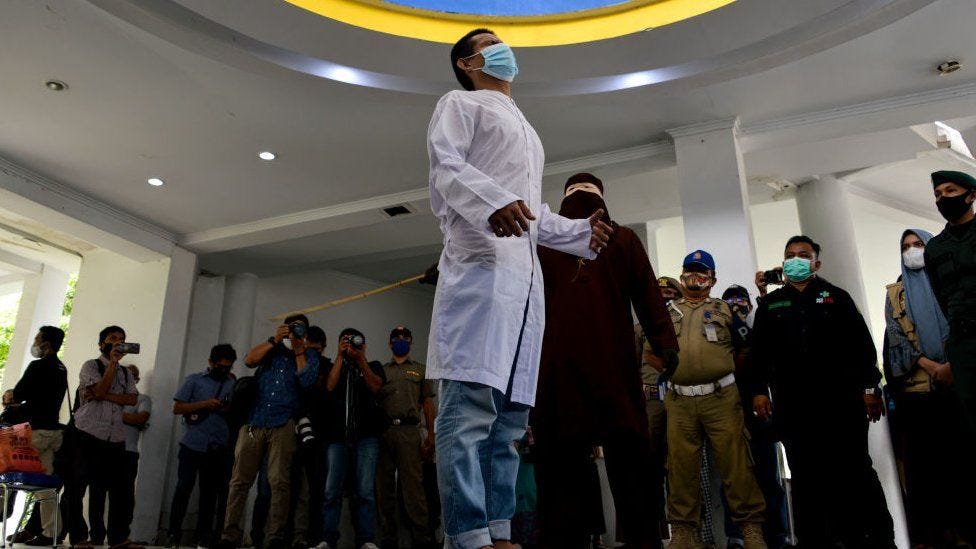The Great GAY Divergence
Gay Pride 2024 will be remembered for two pioneering advances in sexual equality. Thailand has just voted to legalise same-sex marriages, with the Senate voting overwhelmingly in favour. And in Warsaw, 20,000 people just rallied for LGBT+ rights with the full support of the Deputy Prime Minister.
Gay people’s rights and autonomy are increasingly respected - at least in some parts of the world. But progressive values are far from universal. In November 2023, the Russian government declared that LGBT activism is an ‘extremist organisation’ (thereby punishable by imprisonment).
Over the 20th century, some societies became more liberal while others remain deeply homophobic. I call this “The Great GAY Divergence”.

South-East Asia
The Great GAY Divergence is stark in South-East Asia, where Indonesians are actually becoming more homophobic. Back in 2006, 66% of Indonesians said they did not want gay neighbours. By 2018, it had increased to 74%. In Aceh, 2 men were publicly flogged - 77 lashes for having sex. Sex outside marriage has also been criminalised, making gay sex illegal.
Intimidation is also widespread in Malaysia. When a Malay man uploaded a video saying “Saya Gay, Saya Okay” (I’m gay, I’m okay), devout Muslims demanded his arrest. After Swatch brought out a range of LGBTQ watches, these were declared ‘illegal’. Anyone buying or selling faces 3 years in prison.
Religion is the primary difference between Thailand, Indonesia and Malaysia. Buddhists are more gay friendly and far less religious. In Indonesia and Malaysia, by contrast, young people are extremely devout..
Poland
20,000 people in Warsaw attended last weekend’s LGBT+ Equality Parade, including two government ministers. Deputy Prime Minister Krzysztof Gawkowski addressed the rally:
“For me, it is a great honour that for the first time in history, the deputy prime minister took the Equality Parade under his honorary patronage”
He further promised to strengthen LGBT+ rights.

Cross-national variation in attitudes and law
The map below captures cross-national variation. When asked who you wouldn’t want as neighbours, Green countries typically mentioned “Homosexuals”.
In most countries, gay marriage is refused.
What explains the Great GAY Divergence?
Existing scholarship cannot answer this question, as it tends to focus on discrete case studies (like the Americas). Yet, if we cannot explain why Brazil differs from Egypt, our theory is invariably incomplete.
To explain this divergence - which shapes the lives of queers worldwide - we need to study the history of every single society, trace cultural evolution over millennia, and use comparative analysis to rigorously identify the drivers of different outcomes.
That, my friends, is the plan for my second book.
Happy Pride! 🏳️🌈
















Fascinating. I live on a Caribbean island that is a massive outlier compared to the rest of the Caribbean on gay rights* (Saba, Dutch Caribbean, see more here: https://en.wikipedia.org/wiki/LGBT_rights_in_Saba ), and while there are some obvious things that help to explain Saba's LGBTQ-friendliness (like our being Dutch), other islands (St. Eustatius and Bonaire) are in the same political designation, but nowhere near as culturally liberal, on gay rights or on gender equality. So I'll be very interested to see what you come up with in your future book that might explain these kinds of differences.
*In general, the Caribbean is very unfriendly to LGBTQ people.
Useful data here: https://www.niussp.org/gender-issues/decriminalization-of-homosexuality-since-the-18th-century/